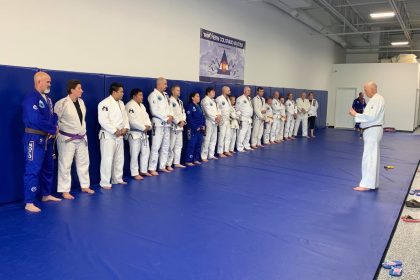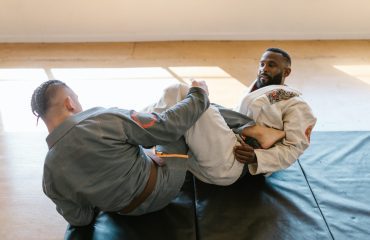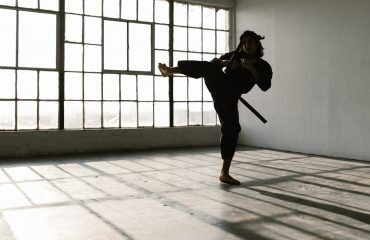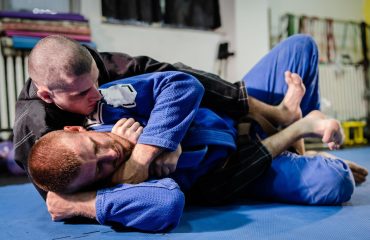
Improving Flexibility
When you are learning a martial art like Brazilian Jiujitsu, flexibility is key. If you are not flexible, you will find it difficult to do the moves properly. You may also find that you are not as strong as you would like to be when trying to hold a position or defend yourself against an attack.
Flexibility can help improve your overall range of motion, which is important when trying to learn new techniques. It can also help prevent injuries since you will be able to move more easily and without pain. In addition, flexibility can help improve your balance and coordination, both of which are important when trying to stay safe in a fight.
If you want to improve your flexibility, there are a few things you can do. First, stretch regularly. This can be done before and after class, or even at home. Second, use a foam roller or lacrosse ball to massage your muscles regularly. This will help loosen them up and make them more pliable. Finally, focus on your breathing. When you stretch, take a deep breath in and hold it for a few seconds before exhaling. This will help relax your muscles and make the stretch more effective.
Flexibility is an important part of learning Brazilian Jiujitsu, but it is not the only thing that matters. You also need strength, endurance, and coordination if you want to be successful in this art. However, if you focus on improving your flexibility, you will find that it becomes easier to learn the techniques and progress in your training.
Regular training
When you are starting out in any martial art, regular training is essential. In Brazilian Jiu-Jitsu, regular training will help you to develop the basic skills required, and will also help you to progress more quickly than if you train only occasionally.
In your first class, you will be taught the basic techniques of Brazilian Jiu-Jitsu. These techniques will include holds, throws, and submissions. You will need to practice these techniques regularly if you want to become proficient in them.
In addition to technique practice, you will also need to do some conditioning work. Brazilian Jiu-Jitsu is a physically demanding sport, and you will need to be in good shape if you want to be successful. The best way to get into good shape for Brazilian Jiu-Jitsu is by doing regular cardiovascular and strength training.
If you can commit to training regularly, you will be able to progress much more quickly in your Brazilian Jiu-Jitsu journey. You will also be less likely to get injured and will be in better shape overall. So make sure that you schedule regular training sessions, and stick to them as closely as possible.
Do a regular Cardio Workout
When you’re learning a martial art like Brazilian Jiu Jitsu, having good cardio is going to help you a lot. When you’re tired, you’re going to be slower and less coordinated, and that’s going to make it harder to defend yourself and harder to submit your opponent. In addition, good cardio will help you stay calm under pressure. If you start to feel winded or overwhelmed, having good cardio will help you keep your head in the game and continue fighting effectively.
Perform basic Drills Regularly
When you are first starting out in any martial art, practicing the basic drills is essential. This is especially true when learning Brazilian jiu-jitsu. By performing the basic drills, you will build the basic skills and techniques that you need to progress in the art. Additionally, practicing the drills will help you to develop muscle memory, which will make it easier to apply the techniques in live situations.
The basic drills that you should focus on include footwork, hip escapes, guard passes, and submissions. Footwork is important because it allows you to move around your opponent more easily. Hip escapes help you to get out of bad positions, and guard passes allow you to move your opponent from your guard to a dominant position. Submission techniques are obviously important for finishing a fight.
If you want to be successful in learning Brazilian Jiu-Jitsu, then you need to drill these basic techniques regularly. The best way to do this is by attending a class at a martial arts school or by practicing with a partner who knows the basics. By drilling these techniques regularly, you will be able to improve your skills and become a better fighter.
Don’t Be Concerned About Being Tapped Out
When you are first starting out in Brazilian Jiujitsu, it is important not to be overly concerned about being tapped out. Many beginners become so focused on not getting tapped that they actually make themselves more susceptible to being caught in submissions. It is much more important to focus on learning the techniques and positions of Brazilian Jiujitsu and let go of any fears or concerns you may have about being defeated.
Being tapped out is a natural part of learning Brazilian Jiujitsu. Everyone gets tapped out at some point, and it is nothing to be ashamed of. In fact, you can use getting tapped out as a learning experience, and as a way to motivate yourself to learn more and become better. When you are focused on avoiding taps, you are not focusing on your technique, and this can lead to sloppy mistakes.
The best way to become better at Brazilian Jiujitsu is to accept that you will get tapped out, and focus on learning from your mistakes. Every time you are caught in a submission, ask yourself what you could have done differently to avoid it. By doing this, you will gradually improve your defense skills and become less vulnerable to being tapped out.
In the end, it is important to remember that everyone starts out as a beginner, and no one is perfect. Do not be discouraged if you get tapped out frequently in the beginning; it simply means that you still have a lot to learn. With time and practice, you will gradually improve your skills and become a more experienced Brazilian Jiujitsu practitioner.
Improve Your Weaknesses
Working on your weaknesses is key to getting better at Brazilian jiujitsu. If you are always trying to improve your weaknesses, you will be able to compete at a higher level and get closer to reaching your goals.
Some of the things you can do to improve your weaknesses include studying under different instructors, attending seminars, and drilling more. By doing these things, you will be able to learn new techniques and strategies that can help you become a better Brazilian jiu-jitsu practitioner.
Additionally, you should also focus on improving your conditioning. This can be done by practicing specific exercises that will help you become stronger and faster. It is also important to eat a healthy diet so that you have the energy needed to train hard and compete at a high level.
By focusing on your weaknesses and improving your overall game, you will be able to reach your goals in Brazilian jiujitsu and become a better martial artist.




